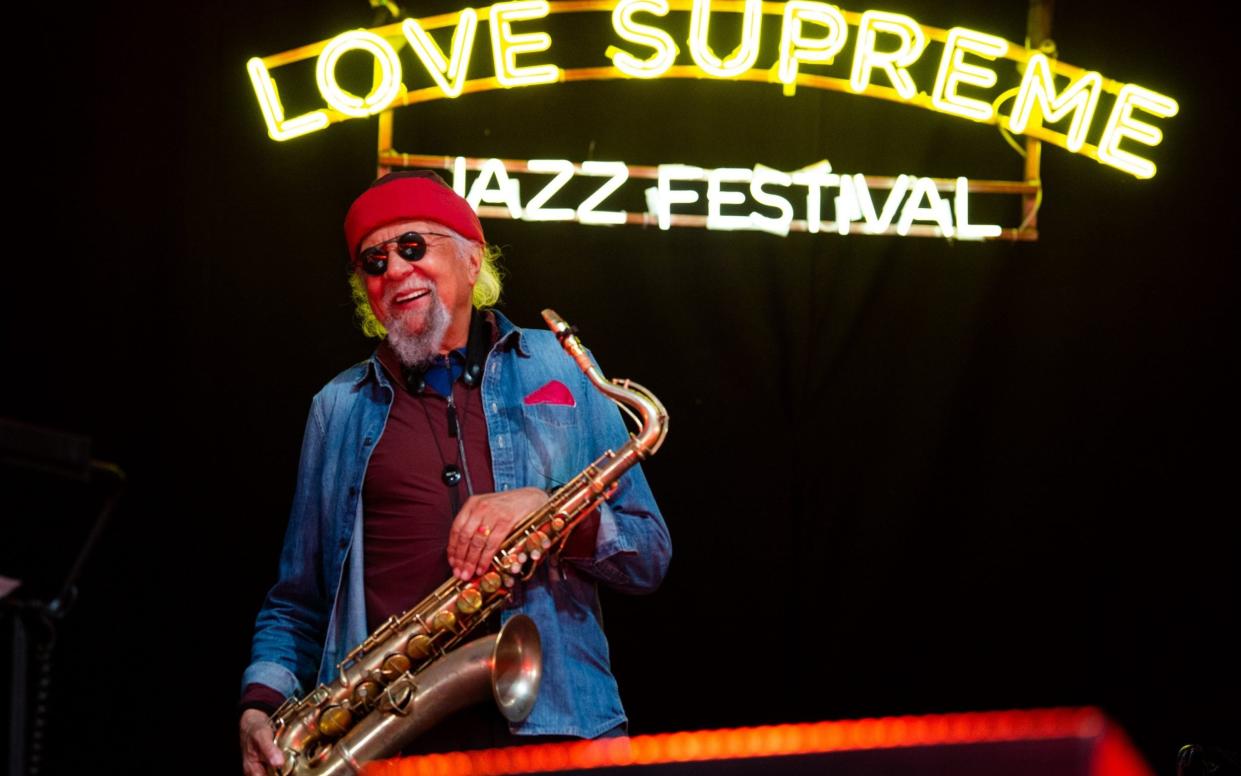Love Supreme Festival, review: the death of jazz has been greatly exaggerated

After a two-year hiatus Britain’s only outdoor jazz festival has come roaring back. When it was launched in 2013 by lawyer and jazz enthusiast Ciro Romano everyone told him he was mad. The weather in Britain was too unpredictable, and jazz just wasn’t cool enough to attract the necessary numbers. But he’s proved the doubters wrong. At the weekend there were 75,000 attendees, five times as many as in the launch year, making Love Supreme the biggest jazz festival in Europe.
To pull in such numbers Love Supreme has had to stretch the definition of jazz to embrace soul, R&B and hip-hop, and as one ambled amongst the Goan curry stalls and religious trinket shops, the sound of some massive soul act in the biggest marquee was always in one’s ears. And yet the sheer size of that marquee, the torpid crowds and its position at the far corner of the sprawling site on fields around Glynde Place in East Sussex made it feel like a bolt-on.
The real life of the festival was at the bustling centre, with thousands roaming among three more human-sized marquees and numerous little ones. Grizzled jazz and soul enthusiasts were there, as always, but for the first time they seemed outnumbered by the younger ones, who danced to the New York Jazz Band’s joyous open-air performances and the earthy funk of New Orleans-based John Cleary and the Absolute Monster Gentlemen.
They also listened alongside their elders to the “real” jazz, of which there was plenty, mingled in a happy coexistence of traditional and new. The old wars between trads and beboppers are now not even a memory.
On Saturday there were easy-going mainstream bands like Chris Coull and the Rebirth Octet, who gave a complete rendition of Miles Davis’s 1957 album Birth of the Cool that was far from just a note-for-note recreation.
It seemed a million miles from the young Nigerian-born trumpeter Ife Ogunjobi with his driving South African-flavoured jazz, complete with African “talking” drum. But at one point, in a slower number, Ogunjobi slipped in the opening phrase of Duke Ellington’s In a Sentimental Mood, very beautifully shaped, as a signal to the initiated.
That was the most overt nod to the jazz tradition. Mostly it was like an underground spring nourishing something very contemporary in feel. It broke the surface many times in the set from a trio led by pianist Sultan Stevenson, who, for me, was the real discovery of the day. His way of placing silences and making a simple four-note lick grow into something significant showed an incipient master at work.
Less audibly linked to the tradition was Matthew Halsall’s Septet, which immersed us in a kind of “eco-jazz” complete with recorded jungle sounds, bird calls, swishing wind chimes and plaintive melodies from harpist Alice Roberts.
Much more to my taste was the agile, witty virtuosity of American guitarist Julian Lage, where you could feel hand and brain working at full stretch and at top speed. This was also true of Lage’s bass player Jorge Roeder, whose spell-binding solos urged Lage on to even dizzier feats – a reminder that emulation and competition still matter in jazz.
It’s a measure of the pulling power of Love Supreme that an even more starry American jazz guitarist, Bill Frisell, appeared alongside his long-time sparring partner Charles Lloyd, probably the greatest jazz saxophonist alive. Their music-making, accompanied by drums and bass, and with live sound modulation, was as relaxed and ambling as Lage’s was edge-of-the-seat.
And yet the intriguing way the two players almost-but-not-quite shadowed each other was every bit as riveting as Lage, in its own way. Wisdom may be a hard thing to define in music, but this performance certainly had it

 Yahoo Movies
Yahoo Movies 
